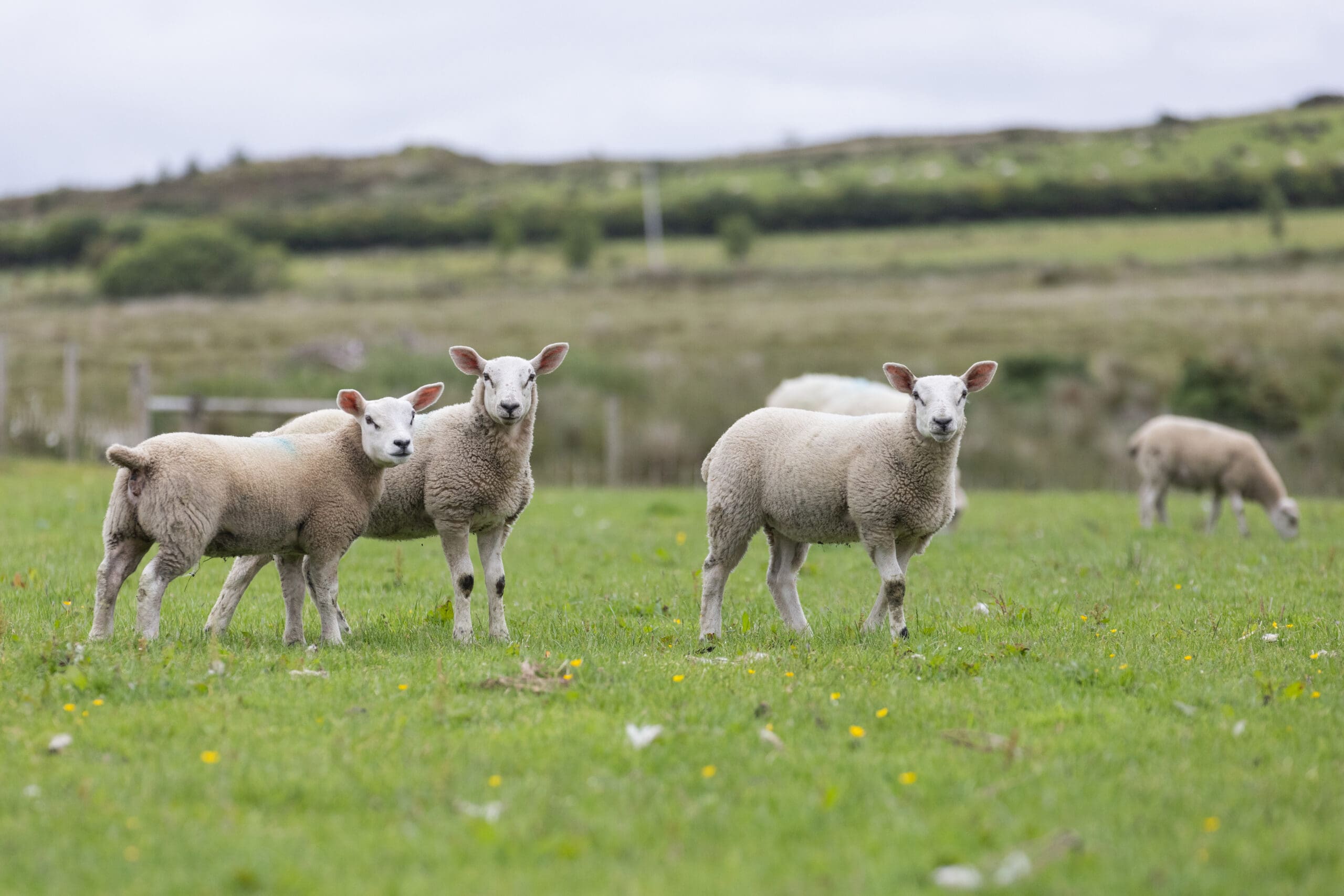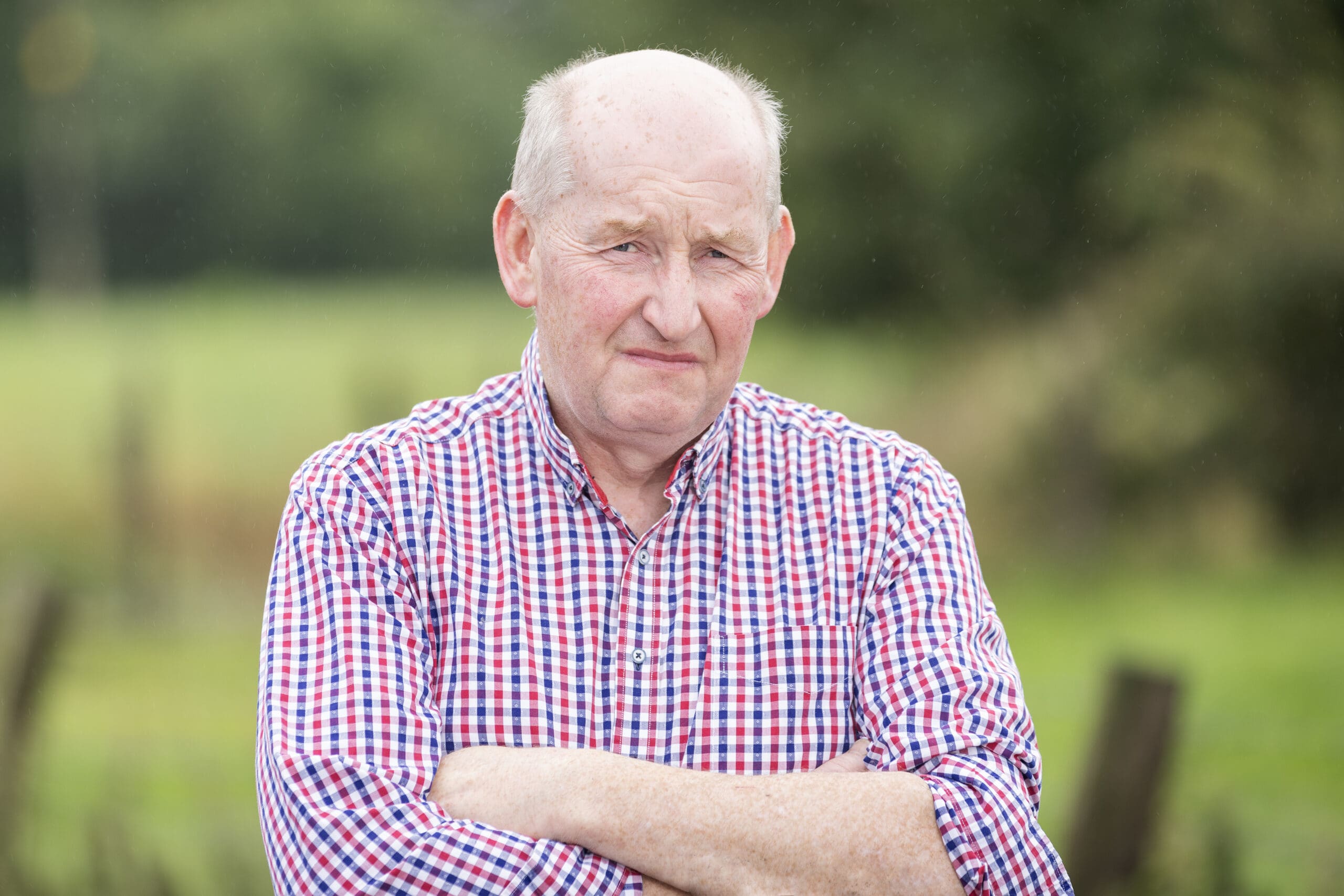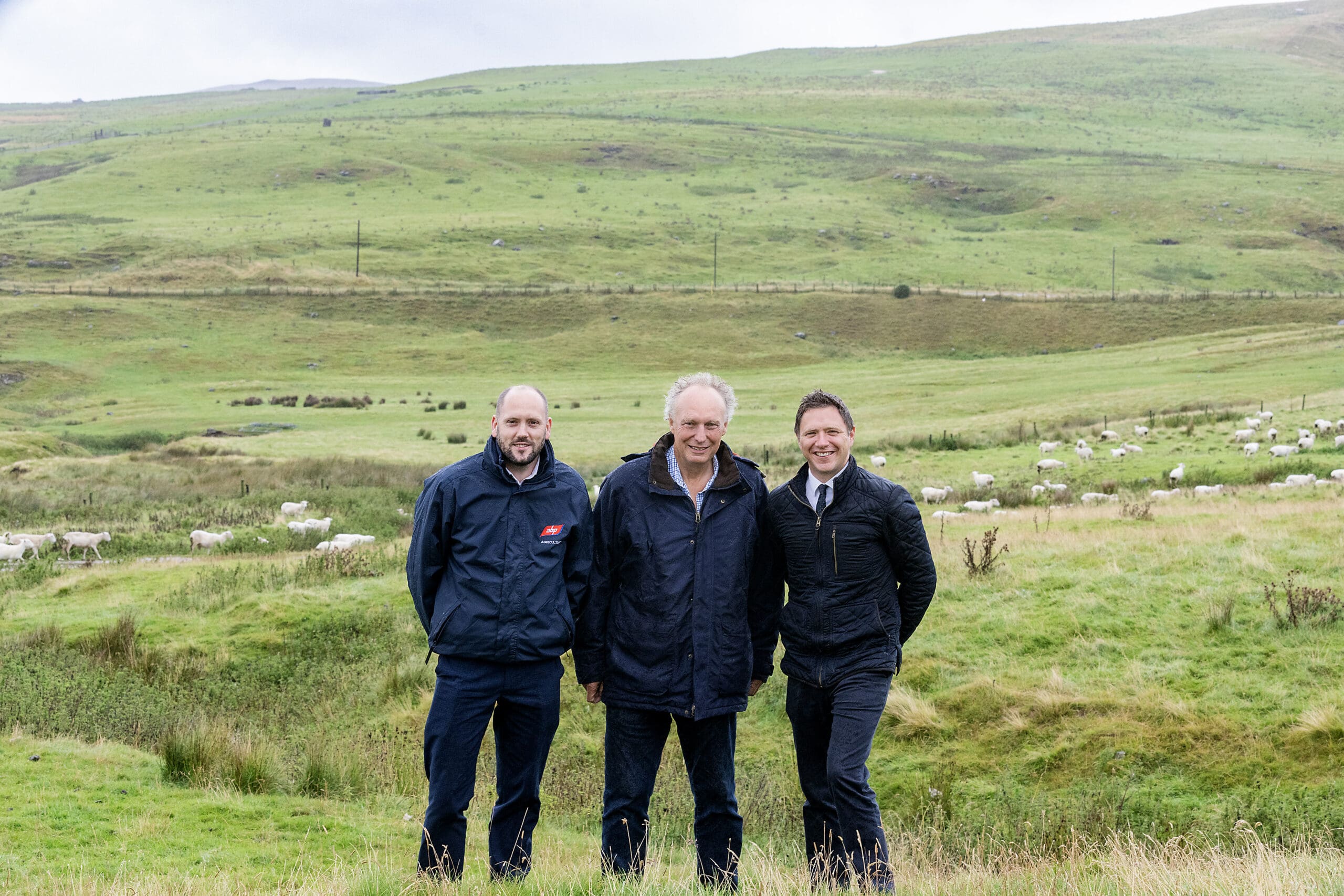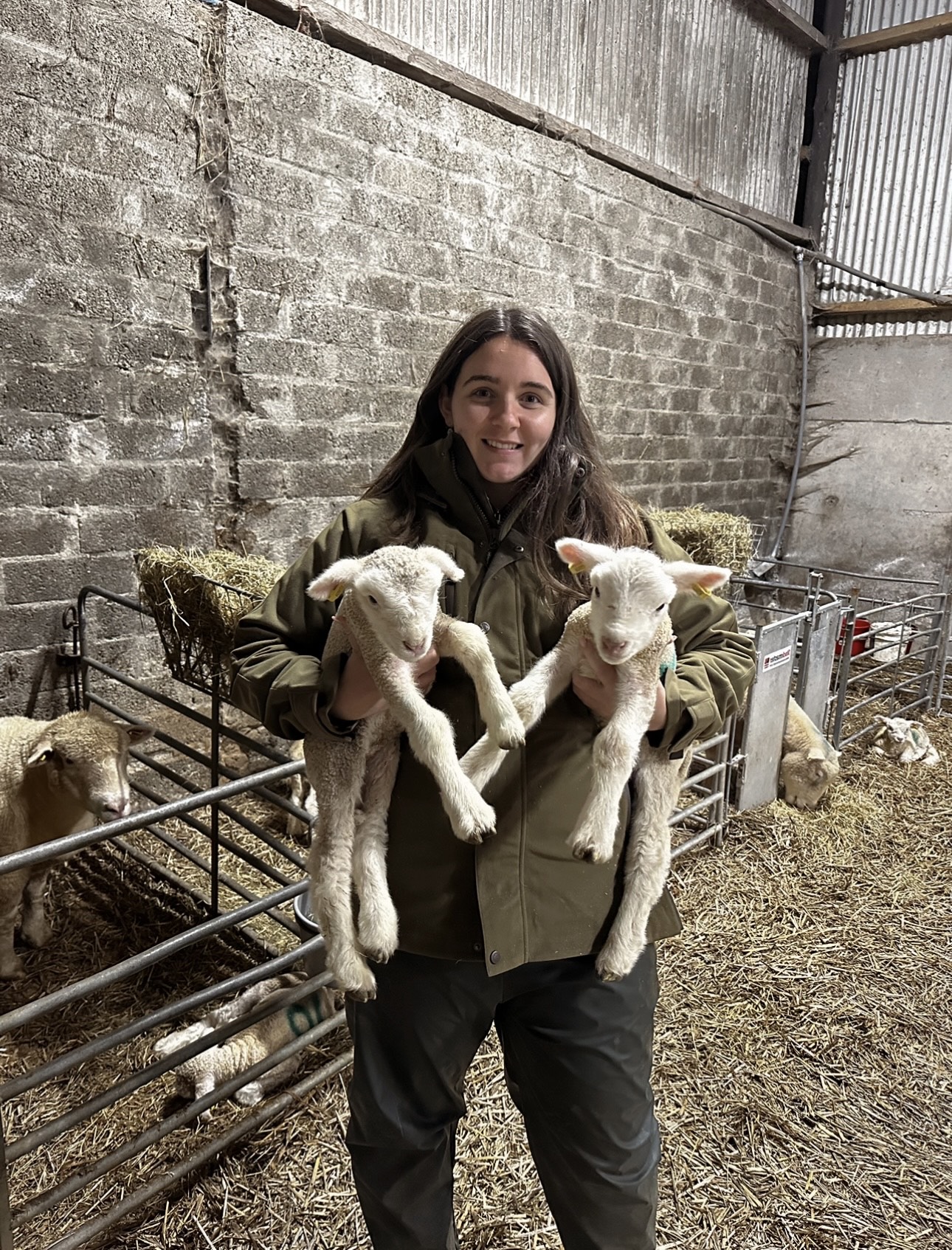
By policy officer Kellie Rouse
In Northern Ireland (NI), 38% of farms have sheep with a total of 1,969,023 sheep in 2024. However, worryingly, year on year, there has been a decline in ewe numbers with a 4% decline from 2023 to 2024. In 2024 the total ewe numbers was 930,447, however, back in the late 90s early 2000s, ewe numbers were around 1.3-1.4 million. Understandably, different agriculture policies at the time drove a higher ewe population. Despite this it is still worrying to see the decline of ewe numbers each year be it due to unstable markets, aging farmers, low profitability, labour shortages etc. Despite lower volumes the value of sheep output has increased by 8% to £123 million in 2024. This was due to a 16% increase in producers’ price to an average of £6.39/kg. Notably, over the last year, NI lambs have experienced a significant increase in live trade with an increase in lambs being exported to GB and Europe. On average lamb prices from the ring to the factory have also remained reasonably strong. Wool prices have also improved with Ulster Wool members receiving the highest return since 2018.
Upland symposium
This week CAFRE and Teagasc held their upland symposium in Antrim. Throughout the symposium there was a strong message on the importance of the role of livestock, particularly sheep in the uplands. It is encouraging to see the recognition of the vital role sheep play in utilising the uplands for food production while also providing environmental benefits. Livestock also play a crucial role in keeping families in the uplands so the hills aren’t abandoned and biodiversity isn’t lost. CAFRE also emphasised that when selecting sheep for the hills, it’s not always about the right breed but the right type of sheep to manage the habitat while producing food.
Sheep lobbying
Despite the many challenges of sheep farming the UFU remains committed to lobbying for NI sheep farmers and promoting sheep production through the likes of Love Lamb week. Love lamb week runs from 1 – 7 September 2025 and is an annual event promoting sheep farmers. The UFU alongside LMC and many other industry bodies, have hosted a range of engaging activities this week to promote the important role of sheep farming. Sheep farming in NI produce high quality lambs with the highest animal health and welfare standards through FQAS.
NI Sheep Taskforce
The UFU alongside the NI Sheep Taskforce, continues to advocate strongly for a sheep support scheme. Currently, sheep farmers in NI continue to be excluded from DAERA’s future agriculture policy. Sheep only farmers will lose up to 17% on their Farm Sustainbility Payment with no option of making up this loss in their income. This 17% will go towards a Protein Scheme, Beef Carbon Reduction Scheme and Suckler Cow Scheme.
The NI Sheep Taskforce would like to see the establishment of a sheep co-design group, sheep genetic scheme, enhanced animal health and welfare measures, sustainable land management and biodiversity initiatives, capital investment measures that support animal health and welfare improvements, and future research and development specific to the needs of the NI sheep sector. The sheep taskforce continues to remind DAERA that NI farmers continue to work at an unfair advantage to our neighbours in the Republic of Ireland who are receiving up to €25 per ewe for a range of animal health and welfare measures.
Sheep farming in NI remains a vital part of the agriculture industry, rural communities and local economies. Declines in flock size and output reinforce the need for stronger agriculture policy to the support the NI sheep industry towards a more sustainable future.




